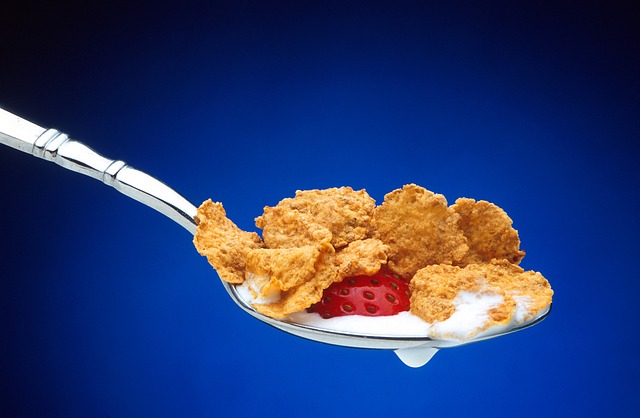October 15, 2017
Kellogg Company continues to rail against flagging sales and shifts in consumer demand by spending large amounts of capital to diversify its business interests into categories that align with convenience and health-conscious options.
The company’s most recent move under its new CEO Steve Cahillane was announced this week as it agreed to acquire RXBAR, the fastest growing bar brand in the U.S., for $600 million.
RXBAR is an excellent strategic fit for Kellogg as we pivot to growth,” said Cahillane. “With its strong millennial consumption and diversified channel presence including e-commerce, RXBAR is perfectly positioned to perform well against future food trends.”
Launched in 2012 by best friends Peter Rahal and Jared Smith who noticed that despite the growing popularity of healthier diets and workout routines, there was a glaring lack of seriously nutritious protein bars on the market, RXBAR uses a base of egg whites for their protein bars that come in 11 flavors and offer 12 grams of protein at only 210-220 calories each. The company added additional seasonal flavors such as the Halloween Pack and Pumpkin Spice and also added a kids line that includes Chocolate Chip, Berry Blast, and Cinnamon Raisin.
Over the company’s short life span it saw meteoric growth, according to Crain’s. After launching in their parent’s kitchen in 2012, the startup moved to its first commercial space in April 2013. By 2014 the co-founders secured partners that helped in commercialization, and RXBAR hired employees that enabled them to stop making their bars by hand. That year the startup was already producing 1.5 million protein bars. By last year a redesign of their packaging sparked a surge in sales, driving the company to see sales of 120 million bars and revenue of $100 million.
“The RXBAR team has built an incredible business, with impressive growth and profitability. Our focus will be on helping to drive the brand’s continued growth,” said Kellogg North America President Paul Norman. “We’re excited to welcome the RXBAR team to Kellogg.”
A Break from Breakfast Cereal
For about 10 years breakfast cereals have been losing market share as consumers raise concerns about their nutritional content and lack of convenience, opting instead for higher protein choices like yogurt or breakfast bars. And although 90 percent of American households still buy cereal and sales topped $8.75 billion in 2015, this number was down from sales of $9.6 billion in 2012 according to data from Nielsen. Sales of hot cereals have also been declining, with combined sales of hot and cold cereals expected to be $10.6 billion last year – 17 percent lower than sales in 2009 of $12.7 billion according to IBIS World.
“The cereal category has undoubtedly had a challenging few years,” Craig Bahner, president of U.S. morning foods at Kellogg Co., told the LA Times.
Like many of the largest CPG companies, such as General Mills and Campbell’s, Kellogg has also turned to a strategy employing venture capital to bring innovative, reactive, and flexible food startups under its wing. Last year the company launched eighteen94 – its venture capital arm that plans to invest up to $100 million (sourced from Kellogg’s corporate balance sheet) through commitments of between $1 million and $3 million in Series A and B rounds.
“The rate of innovation across our industry has picked up dramatically. Things are changing quickly, and investing is a great way to get a sense of what’s going to be important in the future,” Simon Burton, managing director of eighteen94, told Tech Crunch last year.
The VC’s first investment was made in January of this year when it took the lead in a $4.25 million Series A for Kuli Kuli – a manufacturer and distributor of moringa-based bars, powders, and energy shots. Additional investors in the round include S2G Ventures and InvestEco. This was followed by the fund leading a $2 million seed round for innovative plant-based smoothie company Bright Greens in June of this year that also included Blu Venture Investors and CircleUp.
Stand Alone
RXBAR, which now counts 75 employees, will remain based in Chicago after the deal closing, and will continue to operate as a stand alone business. However, it will have Kellogg’s network and scale behind it to drive future growth.
“Access to distribution and R&D resources are two key factors, but Kellogg really helps us address time,” Rahal told FoodNavigator-USA. “Meaning they’ll help us scale more quickly than we could on our own. They’ll also support our in-store execution and provide global reach. Everything will be faster with them, without losing the quality we’ve established.”
-Lynda Kiernan

Let GAI News inform your engagement in the agriculture sector.
GAI News provides crucial and timely news and insight to help you stay ahead of critical agricultural trends through free delivery of two weekly newsletters, Ag Investing Weekly and AgTech Intel.




